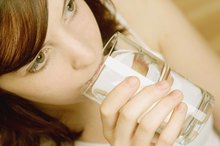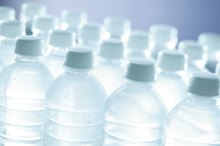What does fact checked mean?
At Healthfully, we strive to deliver objective content that is accurate and up-to-date. Our team periodically reviews articles in order to ensure content quality. The sources cited below consist of evidence from peer-reviewed journals, prominent medical organizations, academic associations, and government data.
The information contained on this site is for informational purposes only, and should not be used as a substitute for the advice of a professional health care provider. Please check with the appropriate physician regarding health questions and concerns. Although we strive to deliver accurate and up-to-date information, no guarantee to that effect is made.
How Much Water Should Adolescents Consume?
**Adolescence, or the period of life from puberty to adulthood, makes up the majority of your teen years.
During this time, proper nutrition is essential for normal growth and development. ** Proper nutrition includes hydration.
Hydration is important for maintaining body fluids and minerals, such as sodium. Physically active adolescents may need more water than their sedentary counterparts due to fluid loss through sweat.
Function
Water serves many functions in the human body. It serves as the medium in which metabolic reactions occur. Water helps lubricate joints, cushion organs and regulate body temperature.
You need water in large quantities daily, and it is important for food digestion, proper absorption of nutrients and waste removal. The requirement for water is expressed as "total" water--which includes all water contained in food, beverages and drinking water.
- Water serves many functions in the human body.
- You need water in large quantities daily, and it is important for food digestion, proper absorption of nutrients and waste removal.
Young Adolescents
How Many Liters of Water Should You Drink?
Learn More
According to the Institutes of Medicine Food and Nutrition Board, adolescent males aged 9 to 13 years require 2.4 liters of total water daily. There are approximately 33 fluid oz. in 1 L of water 1.
Thus, a young male needs about 81 fluid oz. or just over 10 cups of total water daily.
Adolescent females aged 9 to 13 years require slightly less water; 2.1 L of total water daily.
This equates to approximately 71 fluid oz. or nearly 9 cups.
- According to the Institutes of Medicine Food and Nutrition Board, adolescent males aged 9 to 13 years require 2.4 liters of total water daily.
- Adolescent females aged 9 to 13 years require slightly less water; 2.1 L of total water daily.
Teenagers
The larger you are, the more water you require for bodily functions. **According to the Institutes of Medicine Food and Nutrition Board, males aged 14 to 18 years require 3.3 L of total water daily.
** Thus, a teenaged male needs about 112 fluid oz.
or just shy of 14 cups of total water daily.
Females in the same age group require slightly less water; 2.3 L of total water daily.
This equates to approximately 78 fluid oz. or nearly 9.75 cups.
- The larger you are, the more water you require for bodily functions.
- Females in the same age group require slightly less water; 2.3 L of total water daily.
Physical Activity
USDA Recommended Daily Water Intake
Learn More
Adolescents who engage in vigorous physical activities such as sports, particularly in hot weather, may require a higher daily water intake.
In addition, for activities lasting 60 minutes or longer, an electrolyte-replacement beverage, or sports drink, may be beneficial.
Like adults, adolescents should drink approximately 2 cups of water for every lb. lost from sweat post-exercise.
- Adolescents who engage in vigorous physical activities such as sports, particularly in hot weather, may require a higher daily water intake.
- In addition, for activities lasting 60 minutes or longer, an electrolyte-replacement beverage, or sports drink, may be beneficial.
Considerations
Typically, about 20 percent of total water intake comes from foods. Obvious water-containing foods include soups, fruits and vegetables.
However, all foods contain some water. For simplicity's sake, count all beverages toward your fluid intake. Strive to drink plain water most often as it has a neutral pH or acidity level, which does not erode tooth enamel, is well-absorbed and does not cause stomach upset during exercise, unlike sugary beverages.
- Typically, about 20 percent of total water intake comes from foods.
- Strive to drink plain water most often as it has a neutral pH or acidity level, which does not erode tooth enamel, is well-absorbed and does not cause stomach upset during exercise, unlike sugary beverages.
Related Articles
References
Writer Bio
Michele Turcotte is a registered, licensed dietitian, and a certified personal trainer with the National Academy of Sports Medicine. She has more than 12 years of experience in clinical and corporate settings, and has extensive experience in one-on-one diet counseling and meal planning. She has written freelance food and nutrition articles for Trouve Publishing Inc. since 2004.









